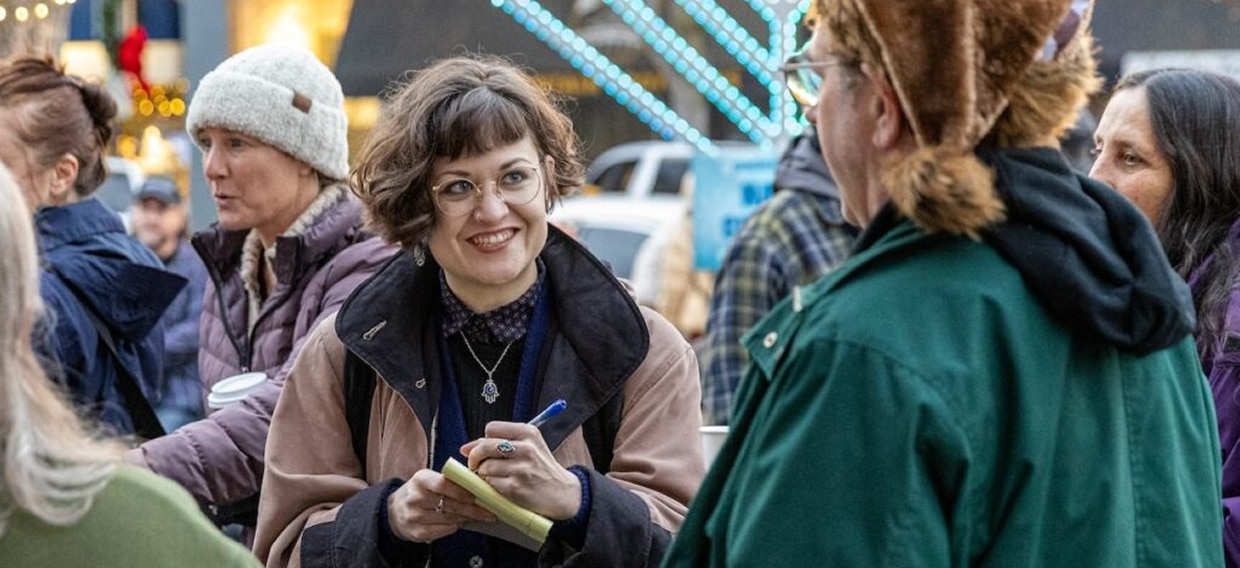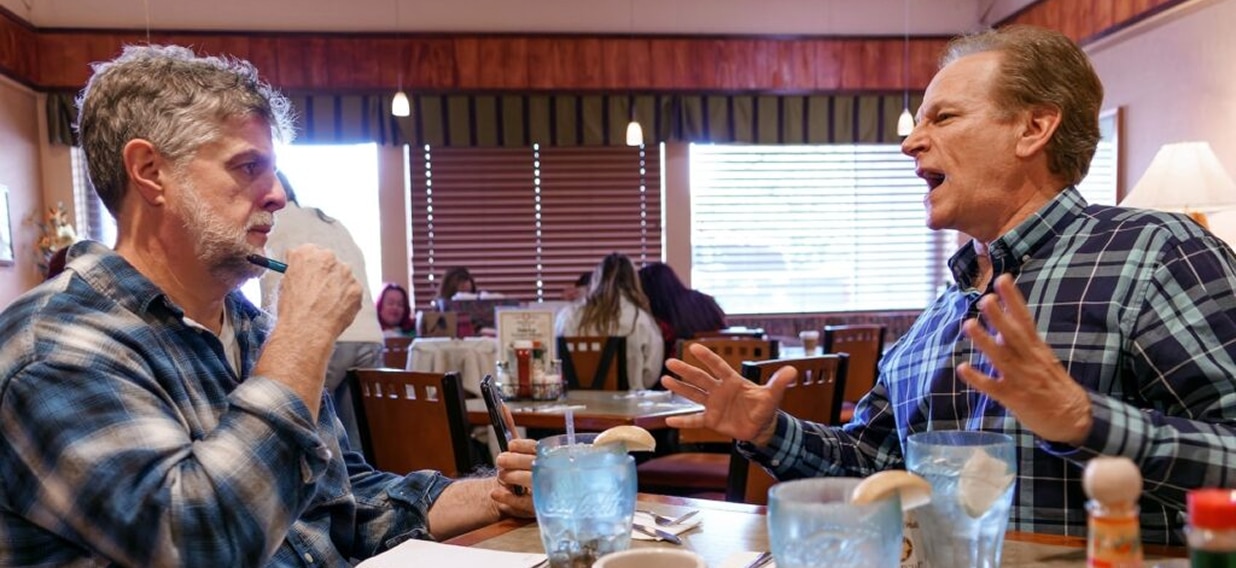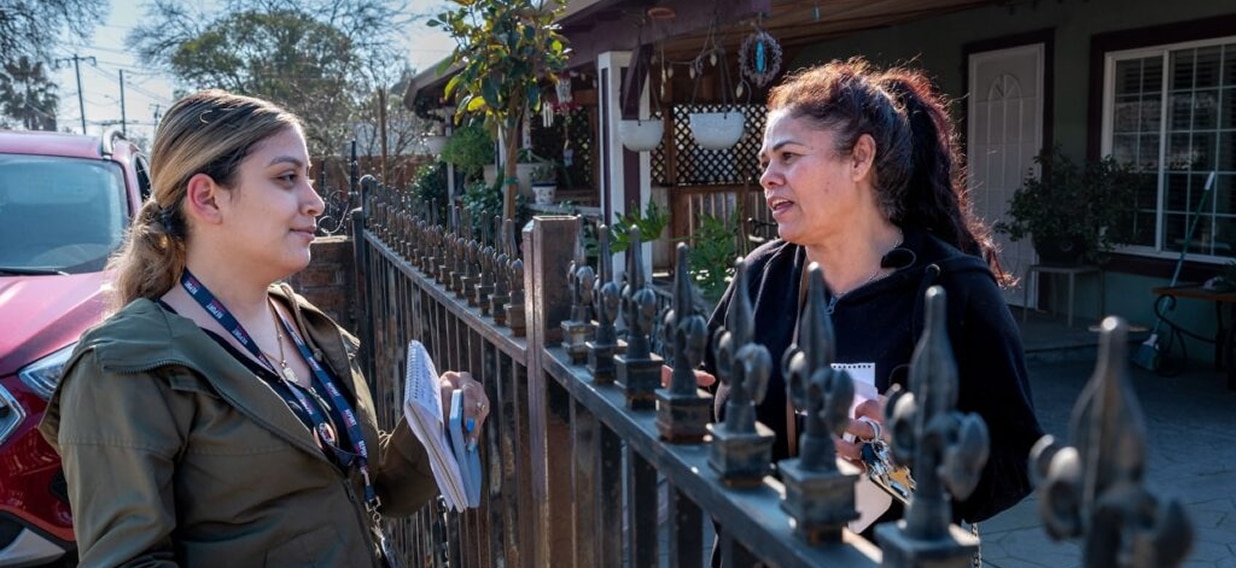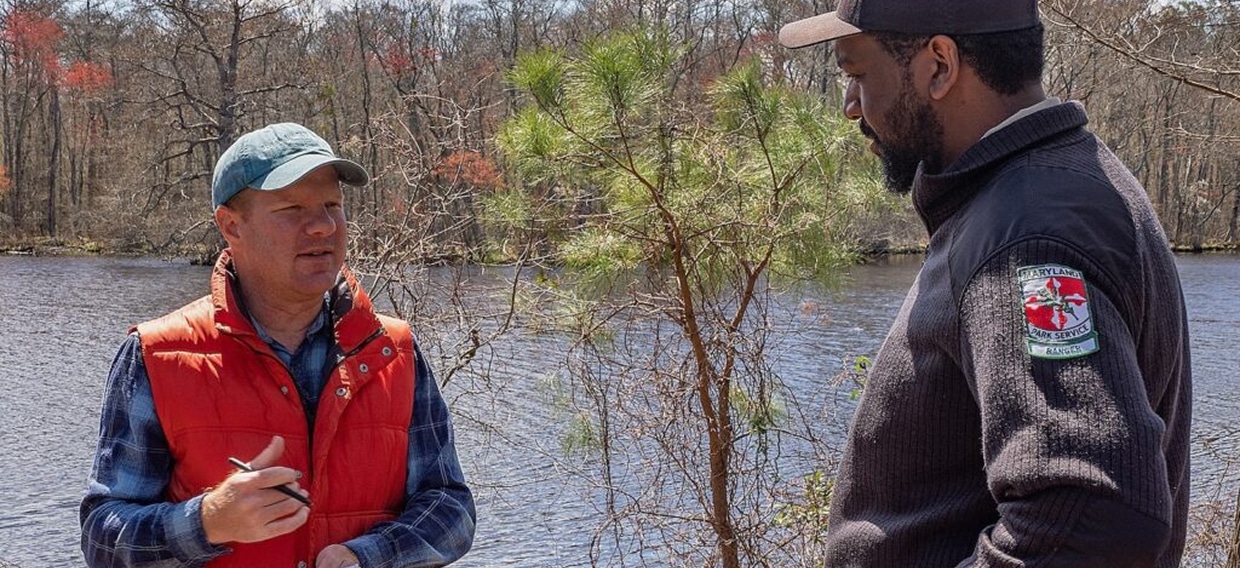
Joanna Detz practices yoga and goes on multiple daily walks with her dogs. Nina Ignaczak escapes to a nearby creek. And Amy Martin makes a cup of tea, takes a deep breath, and gets back to work.
Detz, Ignaczak, and Martin are all founders of news organizations focused on the environment. They understand the importance of their work — and how important it is to make time to recharge when reporting on a heavy topic like climate change.
Although their area of focus is the same, their approach is different. At EcoRI News, which publishes an average of six stories a week, Detz and her staff explore environmental and social justice issues throughout southern New England. With Planet Detroit, a weekly email newsletter, Ignaczak focuses on the environment in Detroit and the surrounding area. And Martin tells stories about people and the planet through her podcast, Threshold. The latest season of Threshold examines what humans need to do in order to limit global warming to 1.5 degrees Celsius.
For each of these women, the work is vitally important. Detz, Ignaczak, and Martin agree that we are in a critical moment in the fight against climate change. Environmental experts say the next decade is crucial to reverse global warming, and that a failure to do so could be catastrophic.
“Sometimes I get overwhelmed,” Martin said. “I need to cry. I need to talk to colleagues or friends and feel what I need to. And then I get back to it.”
Finding strength in numbers
EcoRI News, Planet Detroit, and Threshold are all members of the Institute for Nonprofit News. Around one-fifth of INN’s members are single-topic newsrooms and, among those newsrooms, the environment is the most-covered topic.
Just like their local nonprofit news counterparts, single-topic newsrooms have proven that it’s possible to build a strong community and level of support around issues like the environment.
From the start, Detz and her husband, EcoRI News co-founder Frank Carini, focused on building community connections across Rhode Island.
“We approached starting this nonprofit newsroom as you would if you were running for office,” said Detz, who launched EcoRI News in 2009. “We met with anyone who would meet with us. We were at farmers markets and other local events. We have always taken a grassroots, community-facing approach.”
That approach has paid off. Recently, when a new editor joined the EcoRI News staff, Detz said the editor was amazed at the level of engagement among their community. Readers often respond to their stories and regularly send news tips on future topics to cover. One reader, after reading an EcoRI News report about indoor air pollution, lobbied her children’s school for air filters and eventually drafted proposed legislation in tandem with her state representative.
“Being accessible to people is essential to the work that we do — especially with environment and climate reporting,” Detz said. “I think the issue can feel very big, because it’s happening to the whole world, so we aim to make it about community efforts and the impact in people’s backyards.”
Ignaczak, who founded Planet Detroit in 2019, is still getting to know and grow her community of readers. She recognizes, though, that plenty of groups around environmental issues exist.
“There already is a community around this topic,” she said, adding that one of the challenges is that there are multiple communities that can sometimes be siloed and divided over things like competing interests and funding sources. “There’s a community that focuses on water, there’s another one that focuses on environmental justice, and then there’s another one that is focused on transportation,” she explained.
Ignaczak’s vision is to bring these communities together.
“I would love for Planet Detroit to be a uniting force for all these disparate interests in the environment and public health in Detroit and the Southeast Michigan region,” she said. “We can come together and see where the commonalities lie.”
Signs of success
Martin admits that it can be harder to build community around a platform like a podcast, but proudly shares that Threshold has more than a million downloads and is steadily growing its audience. The podcast also has an Ambassadors program, which invites fans to do things like host listening parties, write their public radio stations, and set up local fundraisers.
One of the things Martin is excited about lately is the Threshold IPA, on tap at Woods Boss Brewing Company in Denver, Colorado. “We’re hoping that there will be a mini-community that pops around that,” she said, laughing. “Maybe some listeners all get together to have a little celebration of the beer and just bond over their mutual love of Threshold.”
Detz can measure EcoRI News’ success in part by how far she and Carini have come. In the early days of their nonprofit newsroom, they made money to support their venture by collecting residential food scrap for compost.
“There wasn’t any residential compost pickup at the time,” Detz recalled. “So people paid us to drive our old pickup truck around, collect their food scraps, and deliver them to urban farms.”
Three years after EcoRI News was founded, they were able to sell that program. Today, Detz and Carini are both full-time employees, along with two other full-time staffers and a fifth starting in June.
“We’re still standing,” Detz said. “Obviously something worked out. It’s incredible.”
Ignaczak recently left her other part-time jobs to solely work on Planet Detroit. She said 2022 is a crucial make-or-break year for her organization.
“Dedicating all of my time to Planet Detroit is forcing me to commit to myself and commit to my vision,” she said. “It’s a little scary. And definitely exciting.”
More than a job
Detz, Ignaczak, and Martin report on the environment not only because they believe it’s a vital topic, but because it connects them to the place they call home.
In Rhode Island, Detz said that the shoreline is shrinking due to erosion — making the United State’s smallest state even smaller. In Detroit, Ignaczak worries about the city’s aging infrastructure being overwhelmed by more severe and frequent flooding.
And Martin splits her time between Missoula, Montana — a city under growing risk of wildfires — and Umeå, Sweden — where warmer weather and vegetation changes are affecting reindeer populations.
For these founders, reporting on environmental changes, holding leaders accountable, and offering solutions to readers gives them purpose — especially when the situation feels desperate.
“Reporting offers me a place to locate all of this energy — this intensity — this desire to be some small part of the solution,” Martin said.
“I really believe we are in a really dire moment,” she continued. “And when you’re in a really dire moment, you keep your nose to the grindstone.”





